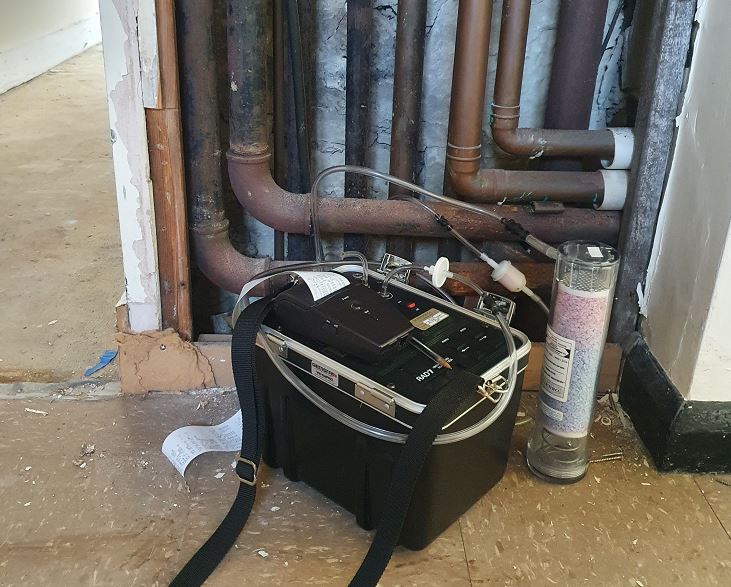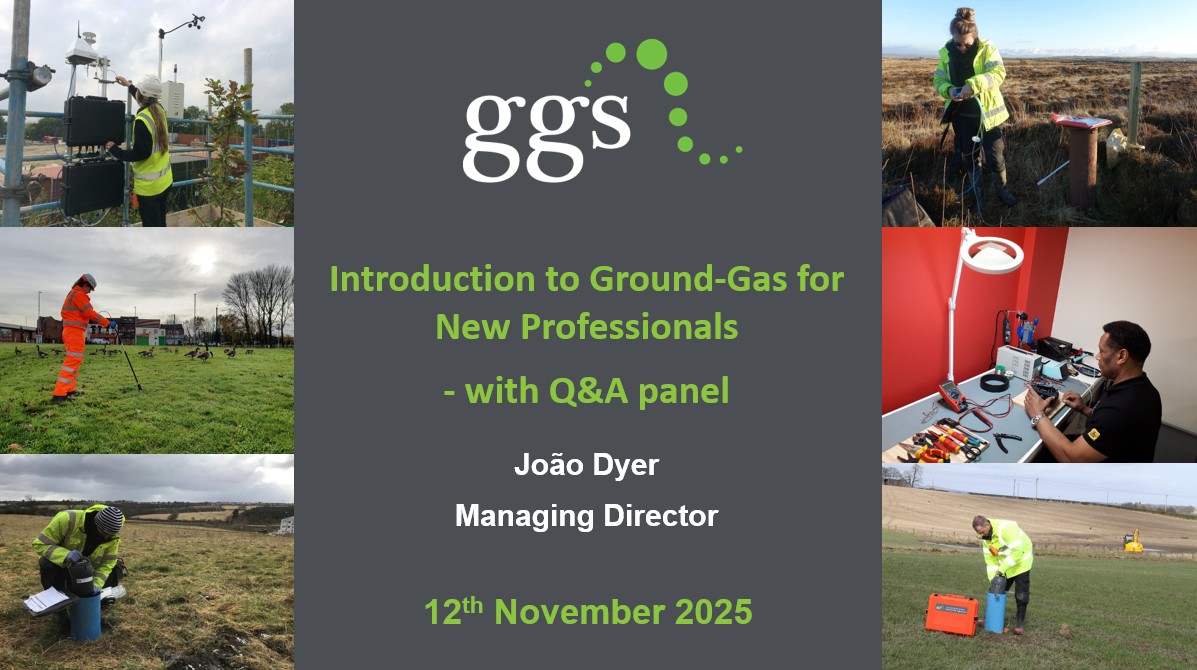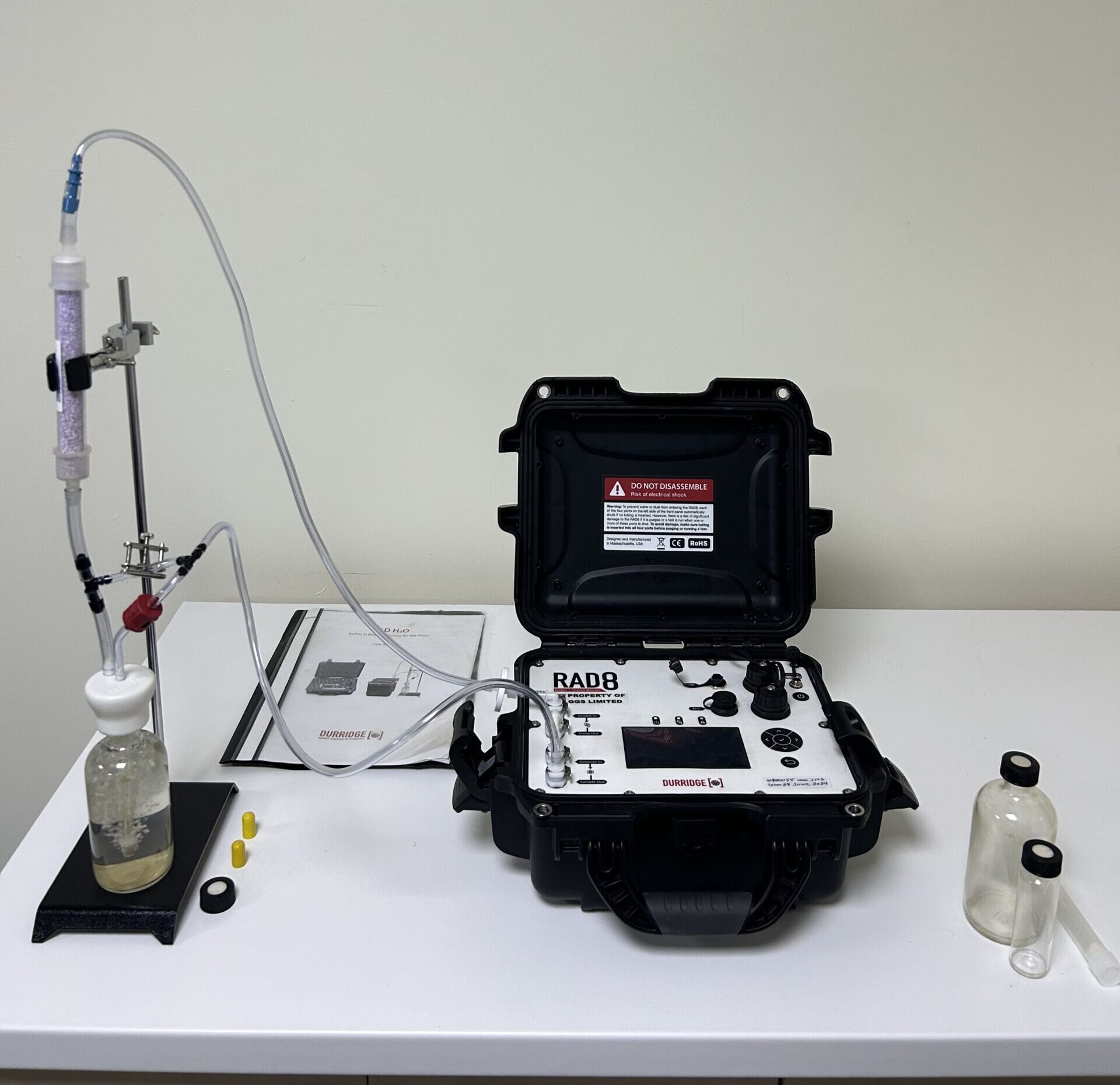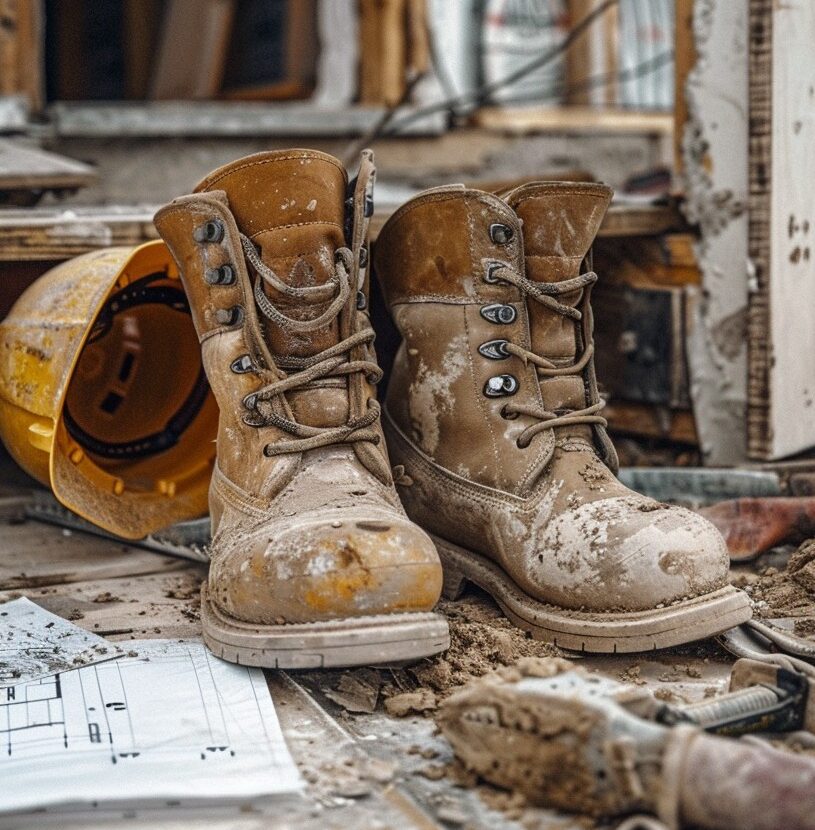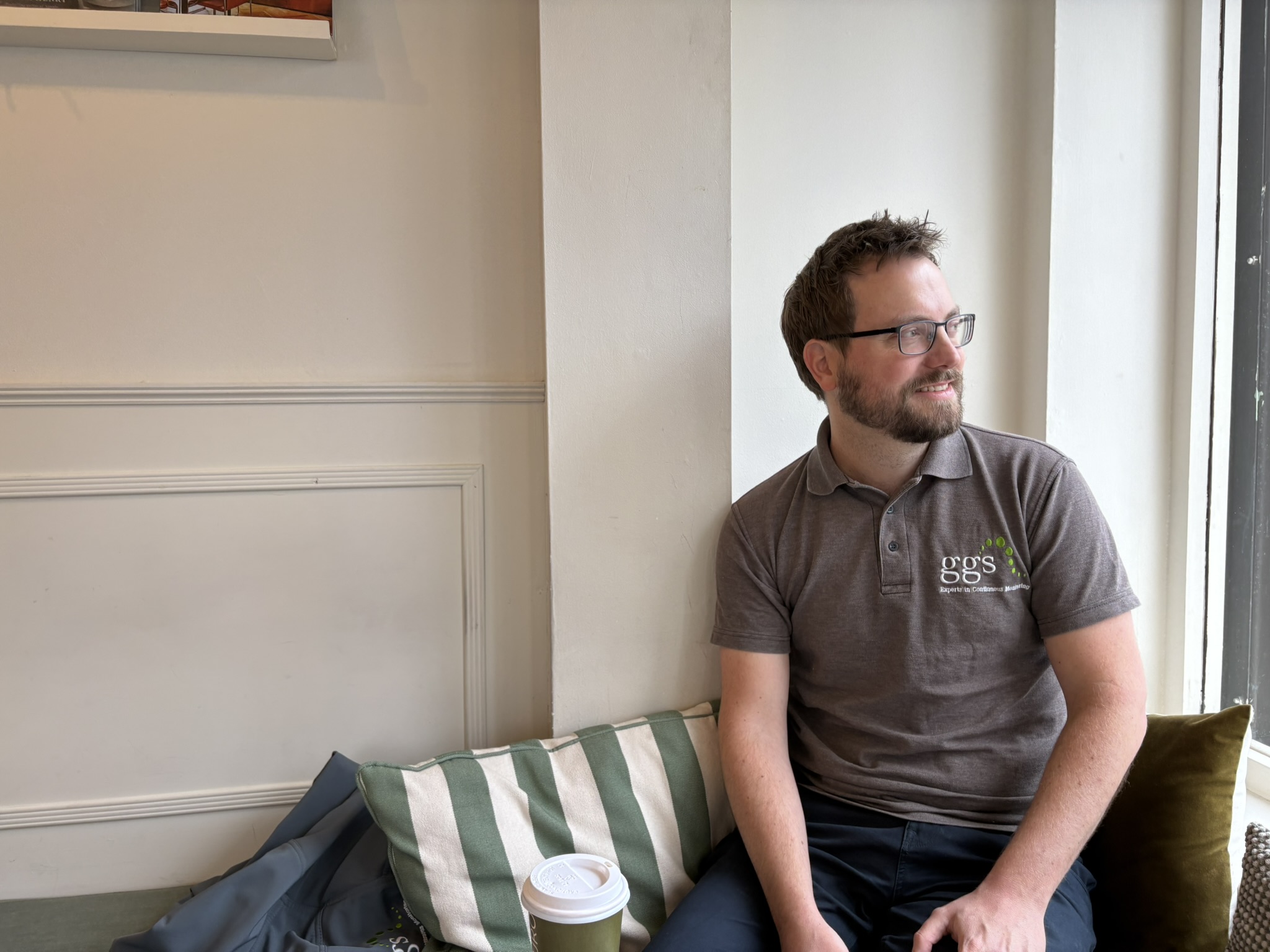Owning a business comes with many challenges and it is likely that you will be busy managing many moving parts. However, when it comes to managing multiple properties, you also have the responsibility to meet your legal duty and protect your employees from harm.
Radon awareness is increasing in the UK, but what can you do about it for your business? Learn more about the solutions by reading on.
Radon is a naturally occurring radioactive noble gas. Radon is constantly being produced in the decay chain of uranium or thorium through natural processes. These minerals are present in rocks, soils and water throughout the UK. As such, radon will escape from the ground into the air, producing further radon daughter-particles. Radon is a hazard when inhaled as its radio-active daughter products can line the airways which poses a serious risk to health as it is the second largest cause of lung cancer after smoking in the UK.
When it comes to the decaying process outdoors, radon can disperse naturally. Indoors, particularly in enclosed properties with poor ventilation, radon poses a much larger concern. As radon is colourless and odourless, it is not easy to detect, so it requires the use of specialist monitoring equipment, especially when it comes to accurately measure the variability of radon levels overtime.

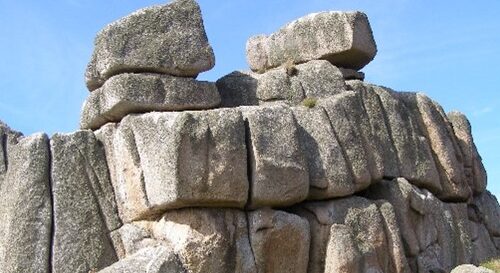
This means that building occupants might be unknowingly exposed to radon. If you own a business, it is your duty to ensure your staff are safe. If they are exposed to radon above the statutory threshold concentrations you may be liable to prosecution and large fines. However, in most cases, mitigation measures are not expensive.
The short answer is yes. Employers must meet a legal duty to protect occupants from harm under the Health & Safety at Work Act (1974) and the Ionising Radiation Regulations 2017. With both legislation working together, you must ensure that radon protection is in place. In tandem with IRR17, if you are an employer, you must also keep radon levels as low as practically possible.
It is likely you will be concerned about managing radon contamination, which is why many businesses will outsource and work with professionals who understand the science behind radon. At GGS we have a team of experienced Geo-environmental scientists who can help.
Considering radon risk as part of your due diligence before purchase of a new property is a sensible first step and can save time later. Its good practice to carry out a radon risk assessment in advance of any purchase or planned redevelopment work.
Through tools such as continuous radon monitoring GGS can investigate at an early stage.
(Image right source: Radon Council: Radon Manual Forth Edition)
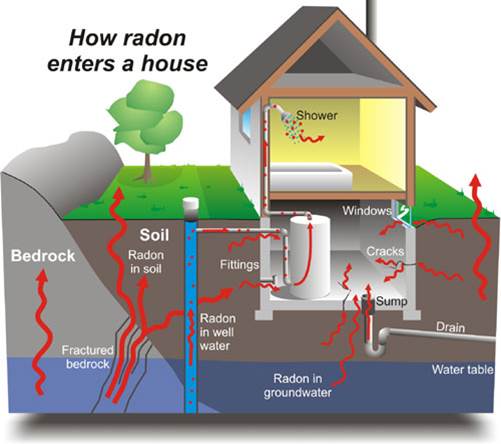
If you hold a variety of indoor buildings, it is crucial that you conduct a radon assessment when you purchase the property. If your building has below-ground or poorly ventilated spaces, an assessment is particularly important to carry-out. For example, if you own heritage properties or banks with enclosed vaults, your staff working in these spaces may be at risk.
Any properties with substantial number of staff such as schools, colleges, care homes, hospitals, and assisted living apartments, should also consider regular radon assessments to ensure the radon risk is low. At GGS we work with a variety of industries, learn more about our clients here.
Consult GGS for full awareness and mitigating radon
Radon can accumulate inside buildings, for examples in basements, and living and working spaces. With the concerns this poses to health it is important to conduct an assessment with specialist equipment rather than making the assumption that a site is safe for staff.
At GGS we offer a science backed bespoke approach that can provide solutions to your concerns about protecting occupiers and employees at your properties. Reach out to us today to learn more about the solutions below.

Advanced technology
At GGS we have advanced technology that help us produce a comprehensive picture of radon risk. As leading technical experts, equipped with a deep understanding of radon and other ground gases, we apply an advanced methodology to our service solutions.
Desk studies
As a first stage, our technical experts produce a comprehensive desk study report. This provides a deep understanding of your site-specific issues that need to be concerned when planning a radon monitoring programme. When it comes to radon monitoring, it is crucial to understand how different environmental factors may be contributing to the increase in radon levels in a property. This is coupled with our geo-environmental science backed approach that gives us a market leading service.
Continuous radon monitoring
.As radon concentrations can vary widely in a property depending on weather conditions and how the building is being used, spot readings will not be reliable. At GGS we will use continuous radon monitoring equipment to provide a bespoke monitoring approach that is designed for your specific building structure. This provides the best information to inform cost-effective mitigation design.
The following pages include news articles, videos, guidance notes and white papers on a range of ground gas related topics which we hope you will find of interest. Please browse through but if you can’t find something on your particular issue of interest, we’d be very pleased to hear from you so we can put that right.
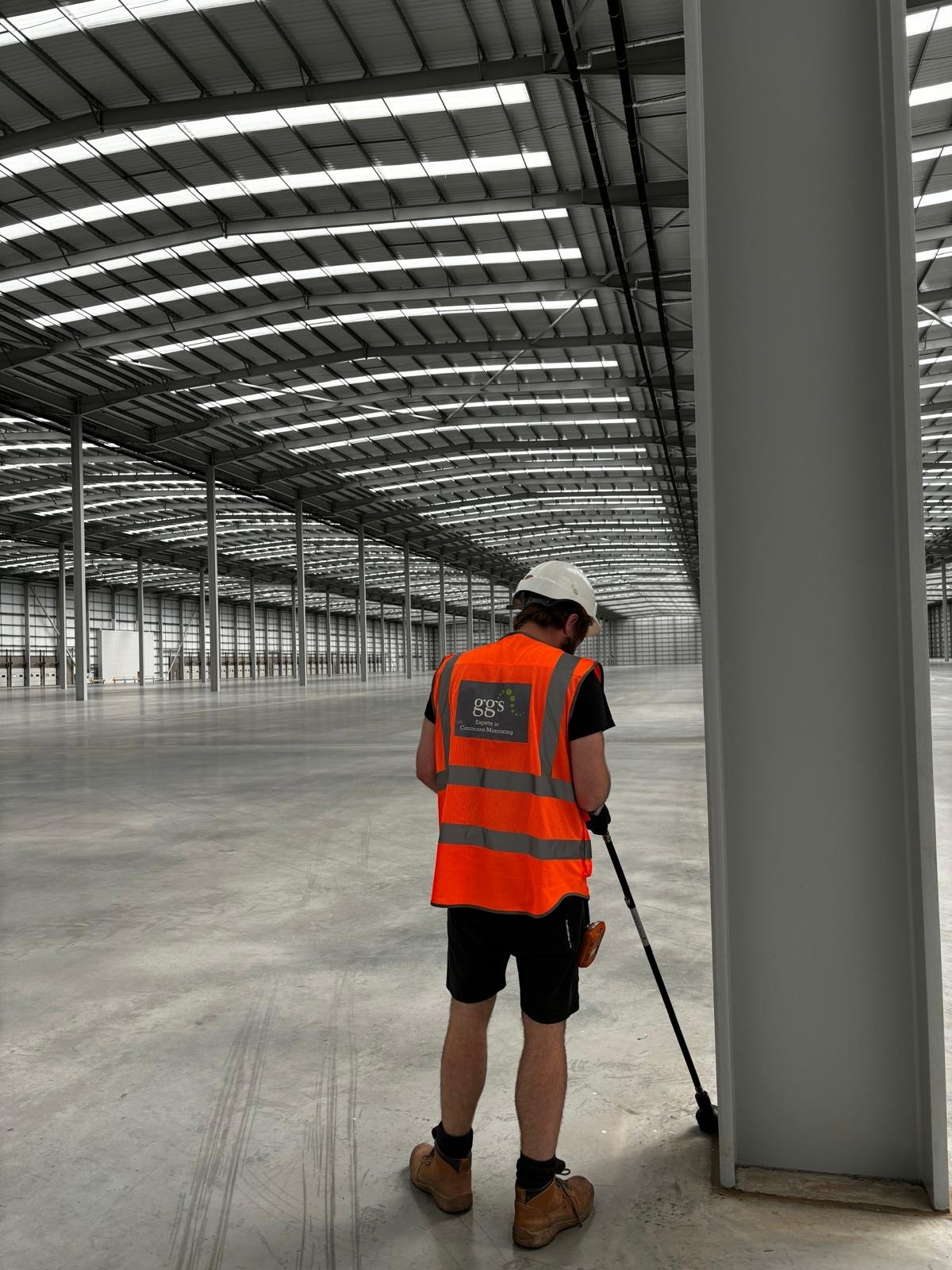
Establishing a new warehouse involves managing numerous moving parts such as ensuring operational systems are in place, training staff and coordinating logistics. Amidst this complexity, it’s essential to remain compliant with environmental and safety regulations.
One important aspect is managing and mitigating ground gas risk. Keep reading to learn about the process and what to expect.

